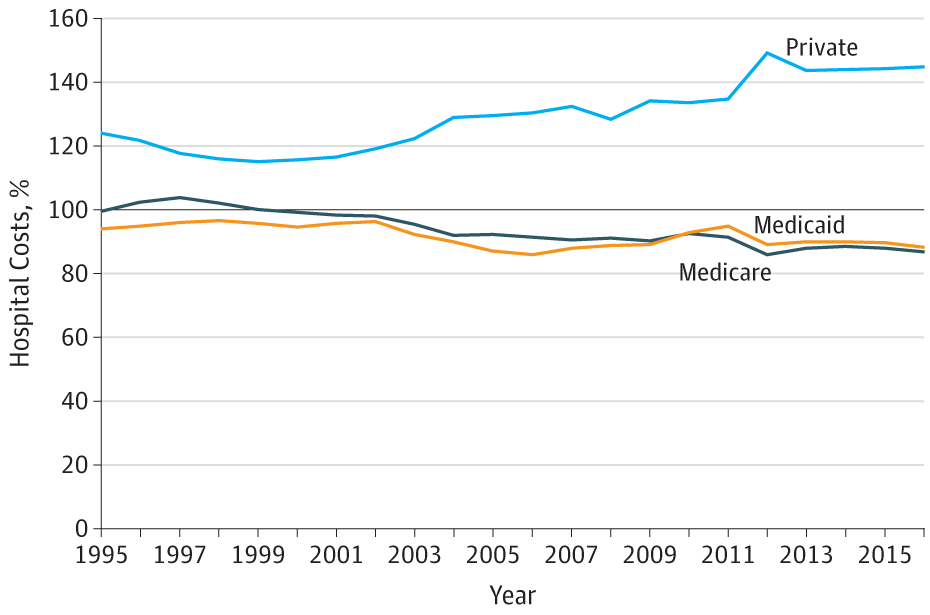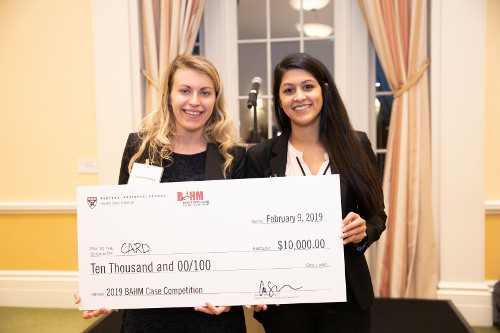Using data from a national survey and levels of triage effectiveness demonstrated in the literature, Eric M. Webb, University of Cincinnati, and Alex F. Mills, Baruch College, conservatively estimate that Medicare alone could save between $3 and $70 million per year (depending on triage effectiveness) by providing incentives for...
Blog
feel free to call us +91.33.26789234 support@seventhqueen.com
Resolving Surprise Medical Bills
In his latest article co-authored with Stanford’s Arnold Milstein and Duke’s Barak Richman, Kevin Schulman argues that Congress can help cut the high cost of healthcare by passing proposed legislation that would cap charges for surprise medical bills: https://bit.ly/2XGUSCE
Rising Health Care Charges: A Red Herring in a Value-Based Health Care World?
In the most recent issue of Mayo Clinic Proceedings, David J. Ballard, Executive Vice President & Chief Clinical Officer at Mentice, and Baylor University’s Neil Fleming, analyze the implications of a recent study demonstrating a rise in hospital charges for surgical episodes despite the concurrent decline in the costs...
The Doctor-of-the-Future Is In: Patient Responses to Disruptive Health-Care Innovations
Kevin Schulman and Stacy Wood write in the most recent issue of the Journal of the Association for Consumer Research about the increasing importance between marketing and medicine as patients respond in varying ways to changes in healthcare innovations. There is a greater need for consumer research to understand...
NYT: Hospitals Stand to Lose Billions Under ‘Medicare for All’
Private insurance pays hospitals much more than the federal government does for patient care. If Medicare for all means Medicare rates, expect an industry backlash. Read the entire New York Times article, which quotes Kevin Schulman, BAHM’s Board President.
Antitrust Law Does Not Require Rx Drug Rebates, And It Does Not Prohibit Discounts
A review of relevant law reveals that the Trump administration is not nearly as hampered by antitrust law as the pharmaceutical benefits manager industry argues. Antitrust law does not prohibit manufacturers from offering discounts on drug prices, and antitrust law cannot justify the industry’s current aggressive use of rebates,...
The Implications of “Medicare for All” for US Hospitals

Medicare for All’s impact on hospitals would be significant, including a 15.9% reduction in revenue and 1.5 million jobs lost, unless hospitals quickly became more efficient, according to a piece by Arnold Milstein & Kevin Schulman in the latest issue of JAMA: https://bit.ly/2uMiidU
Understanding high drug costs and the role of pharmacy benefit managers
Kevin Schulman writes in a Stanford Medicine article that although consumers may benefit by having an intermediary help to secure the best prices for medications, questions persist about how much should be paid for this service, and how transparent the whole market should be. Read more
App Co-Developed by the University of Minnesota Wins AHRQ Award

Congratulations to Pinar Karaca-Mandic and the Medical Industry Leadership Institute (MILI) at the Carlson School of Management for their role in the development of the PRISM app, which won the AHRQ Step Up App Challenge! Created by PerkHealth, MILI and Fairview HealthEast Kidney Stone Institute, the app seeks to...
UNC, Baylor and Baruch Win Top Prizes at BAHM Case Competition

Congratulations to the student teams from UNC Kenan-Flagler Business School, Baylor University’s Hankamer School of Business, and Baruch College, Zicklin School of Business, for placing in this year’s BAHM case competition. Nearly 40 students from 12 BAHM-member schools presented business models designed to promote healthy lifestyles in low-income communities....
Search Our Site
Recent Posts
- 2024 BAHM Case Competition Winners
- Hospital Consolidation and Physician Unionization
- Employer-Based Health Insurance and Employee Compensation
- Proposing An Innovative Bond To Increase Investments In Social Drivers Of Health Interventions In Medicaid Managed Care
- Maintaining Health Care Innovations After the Pandemic
